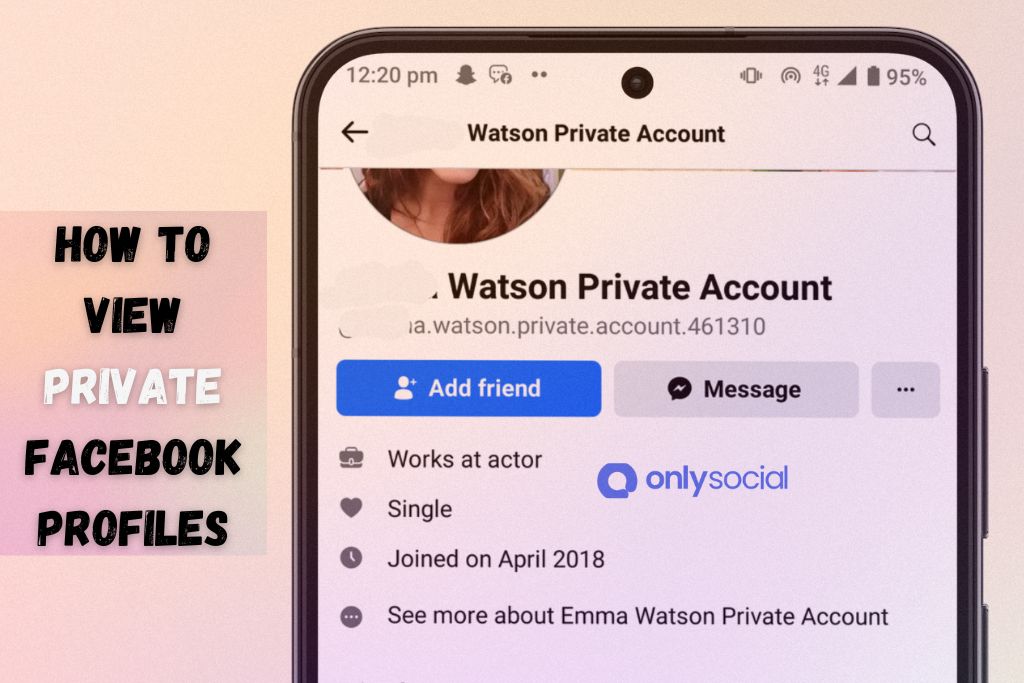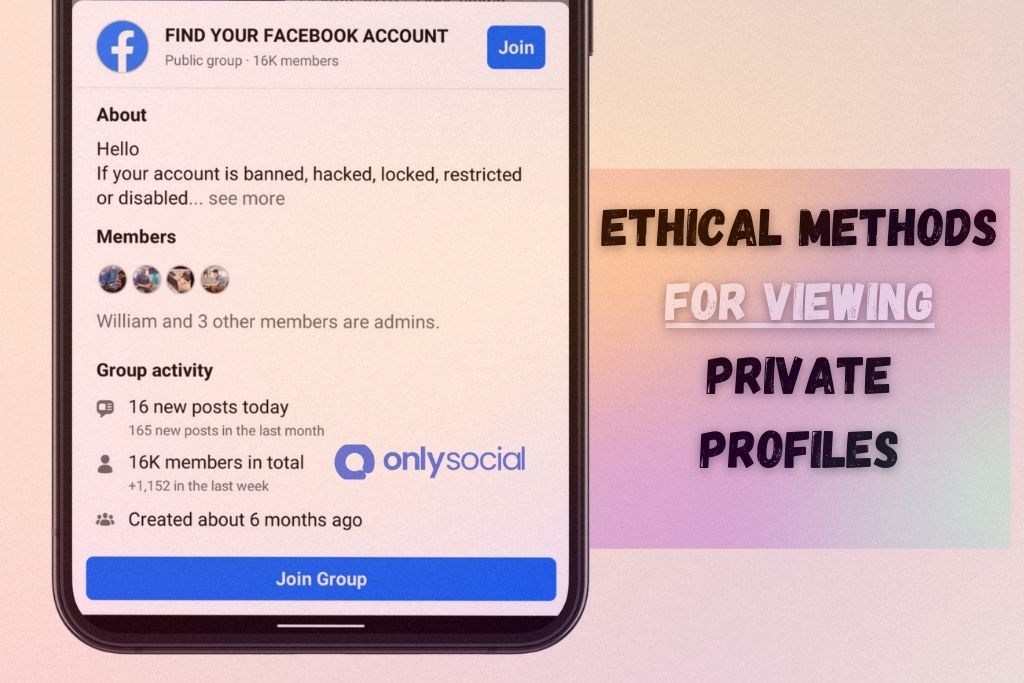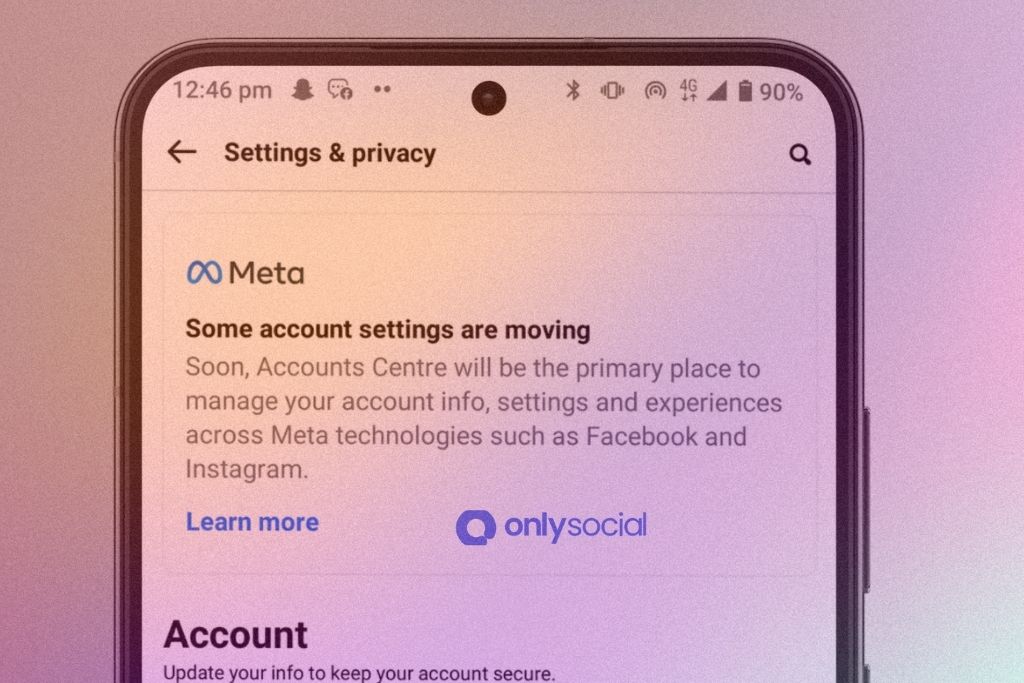How to View Private Facebook Profiles: A 2025 Ethical Guide

In the ever-evolving world of social media, the privacy of users remains a paramount concern, especially on platforms like Facebook. With its vast user base, Facebook has continually adapted its privacy settings to meet the changing needs and concerns of its community. This brings us to the delicate and important topic of “How to View Private Facebook Profiles: A 2025 Ethical Guide.” In this guide, we’ll explore the ethical considerations and permissible ways to interact with private profiles on Facebook, respecting individual privacy and adhering to the platform’s policies.
As we move through 2025, understanding how to navigate Facebook’s privacy settings is not just about technical know-how; it’s about cultivating a respectful approach to online interactions. With a heightened focus on digital privacy and ethics,
this guide aims to provide users with the knowledge and understanding necessary to engage with private Facebook profiles in a manner that honors the privacy choices of individuals. Whether you are seeking to reconnect with old friends, expand your professional network, or simply understand more about Facebook’s privacy features, it’s crucial to approach this with a sense of responsibility and respect for others’ online boundaries.
From the basics of Facebook’s privacy settings to ethical ways of sending friend requests and messages, we’ll delve into the strategies that are both effective and considerate. This guide is tailored to help you navigate the complexities of online
privacy in a socially conscious and informed way. We will cover everything from understanding the rationale behind private profiles to the respectful and appropriate methods of requesting access. In today’s digital age, where online interactions are as significant as face-to-face ones, embracing ethical practices in social media usage is not just recommended; it’s essential.
Table of Contents
- 1 Ethical Methods for Viewing Private Profiles
- 2 Staying Cautious: What Not to Do
- 3 Social Media Best Practices
- 4 The Importance of Ethical Internet Use
- 5 BONUS
- 6 Frequently Asked Questions
- 6.0.0.1 Can I view a private Facebook profile without sending a friend request?
- 6.0.0.2 Is it acceptable to create a fake Facebook account to view private profiles?
- 6.0.0.3 If someone rejects my friend request, can I try again?
- 6.0.0.4 Is joining a mutual group or attending an event a good way to view private profiles?
- 6.0.0.5 How do I safeguard my own Facebook profile?
- 7 Conclusion
Ethical Methods for Viewing Private Profiles
When it comes to exploring How to View Private Facebook Profiles: A 2025 Ethical Guide has the essential tips to guide your path. With a focus on ethical and respectful practices, this section lays out the most suitable ways to access private content on Facebook.
1. Sending a Friend Request
Consider reaching out to the person. Facebook’s fundamental purpose is to connect people. So, why not use it for its intended purpose? Sending a friend request is the most straightforward and ethical way to view someone else’s private Facebook profile. Doing this fosters genuine communication and connection.
2. Joining Mutual Groups and Events
An alternative way to interact with individuals whose profiles are private is through mutual groups or events. You may find shared interests or activities that allow you to connect, engage in discussions, and forge new relationships. This way, you respect their privacy while socially engaging and expanding your network.
Finally, engaging with content that a private user has willingly shared to the public or mutual friends provides another avenue for interaction. Commenting on their posts in group spaces or shared threads respects their privacy settings while allowing for potential connection.
This 2025 ethical guide serves as a reminder that respecting privacy is non-negotiable on Facebook – or any social platform, for that matter. Thus, understanding how to view private Facebook profiles, while maintaining ethical boundaries, is an essential skill for savvy and responsible social media users.
Staying Cautious: What Not to Do
While learning How to View Private Facebook Profiles: A 2025 Ethical Guide highlights the importance of ethical practices, it’s equally crucial to understand activities you should avoid. Steering clear of these actions will help you maintain integrity and preserve the trust that social media users put in one another.
1. Avoiding Fake Accounts
Creating fake accounts, also known as “catfishing,” to view private profiles is not only unethical but also against Facebook’s terms of service. False identities harm the platform’s fundamental premise of fostering authentic connections. This practice can lead to negative consequences for both the perpetrator and the targeted individual.
2. Respecting Boundaries and Consent
If a user has specifically rejected your friend request, respect their decision and do not attempt to bypass their privacy settings. Ignoring their wishes could lead to uncomfortable situations and violate their right to online privacy. Respecting others’ boundaries is essential to maintaining a safe and enjoyable online environment.
By acknowledging the potential pitfalls and remaining steadfast about ethical practices, you can appreciate the intricacies of how to view private Facebook profiles without crossing any boundaries. Resisting the temptation to resort to underhanded methods will protect your reputation and help you forge strong, genuine connections on social media platforms.
Social Media Best Practices
Equipping yourself with the insights provided by How to View Private Facebook Profiles: A 2025 Ethical Guide is just the beginning. To thrive in the world of social media, you must also be aware of the best practices and how to incorporate them into your daily online interactions.
1. Understanding Privacy Settings
Educate yourself about the privacy settings available on Facebook. By familiarizing yourself with these options, you can better protect your own privacy while respecting that of others. Ensure your content is shared with the appropriate audience, and develop a better understanding of what other users choose to share publicly versus privately.
2. Respecting Data Privacy Laws and Guidelines
Maintain awareness of the ever-evolving landscape of data privacy laws and guidelines. This knowledge enables you to operate within both legal and ethical parameters while using social media platforms such as Facebook. Understanding the rules helps avoid serious breaches that could lead to severe implications.
Adopting social media best practices outlined in this 2025 ethical guide is a way to enhance your overall experience on Facebook. By acting responsibly, you contribute to a safe and vibrant online space where meaningful connections can grow.
The Importance of Ethical Internet Use
As the digital landscape expands, turning to an ethical guide, such as How to View Private Facebook Profiles: A 2025 Ethical Guide, becomes increasingly important. Ethical use of the internet, particularly on social media platforms, is crucial in maintaining a healthy and respectful online environment.
1. Respecting Others’ Privacy Online
Just like in physical interactions, there are boundaries in digital interactions as well. Your actions on the internet can have real-life implications for both yourself and the people you interact with. Therefore, it’s essential to respect people’s privacy and think about the potential impact of your actions.
2. The Consequences of Breaching Ethical Boundaries
While it might seem like what happens online stays online, the reality is different. Breaching ethical boundaries can have serious consequences. It can lead to damaged relationships, loss of trust, and potential legal consequences. Ethical internet use is not just about protecting others. It’s also about protecting yourself from the potential fallout of irresponsible actions.
This 2025 ethical guide underscores the significance of ethical use of the internet. When it comes to understanding how to view private Facebook profiles, moving forward with respect, understanding, and good intentions will always steer you in the right direction.
BONUS
Elevate your social media game responsibly in 2025 with OnlySocial! Our Post Planning and Scheduling function empowers you to effortlessly plan and schedule posts across all your social networks. Enjoy unlimited posting and manage an unlimited number of social profiles. Take control of your online presence with precision and ease. Sign up for a commitment-free 7-day trial today.
Frequently Asked Questions
Can I view a private Facebook profile without sending a friend request?
No, an ethical approach to viewing private Facebook profiles would require you to send a friend request. Trying to view private profiles without the individual’s consent would be a breach of their privacy.
Is it acceptable to create a fake Facebook account to view private profiles?
No, creating fake accounts violates Facebook’s terms of service. It is both unethical and considered “catfishing.” Instead, focus on ethical methods to interact with other users.
If someone rejects my friend request, can I try again?
While there is no specific rule against sending another friend request, it’s crucial to respect the individual’s privacy and consent. They may have had a good reason for rejecting your request. Repeated attempts might be deemed intrusive or against their wishes.
Is joining a mutual group or attending an event a good way to view private profiles?
Yes, joining mutual groups or attending events provides an opportunity to connect with people who share similar interests. It is an ethical method to engage with others, rather than bypassing their privacy settings.
How do I safeguard my own Facebook profile?
You can protect your privacy on Facebook by exploring and understanding privacy settings. Adjust your settings to control who can view your content, send friend requests, and access your personal information. Regularly review and update these settings as needed.
Conclusion
Ethics in the digital landscape are paramount. How to View Private Facebook Profiles: A 2025 Ethical Guide presents insights into interacting on social media, particularly Facebook, in a respectful and considerate manner. By understanding and implementing ethical practices, like respecting privacy settings and avoiding underhanded techniques, we contribute to a safer and more compassionate online environment.
Remember, social media is about establishing genuine connections and fostering communication. Pushing the boundaries of another individual’s privacy not only hampers this goal but can also lead to severe consequences both legally and socially. It’s our responsibility as netizens to treat online spaces with the same, if not more, respect we do physical ones, ensuring mutual trust and respect for a positive digital experience.

